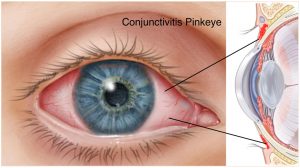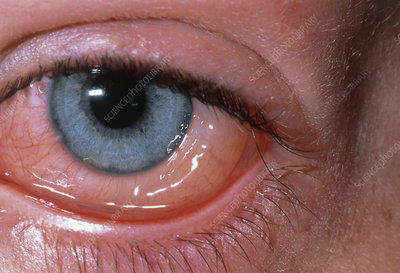
If your child develops conjunctivitis, he or she should visit a doctor. Your child’s healthcare provider will ask about symptoms and family history, and perform a physical exam. Infection in the eye can spread to others through contact, so make sure your child isn’t exposed to others’ eyes while the infection is present. The fluid from the eye may be tested for bacterial and viral causes. If you think your child may have this condition, your health care provider will prescribe an antibiotic eye drop. The antibiotics will prevent secondary infections. For those with an allergy, your healthcare provider may recommend an anti-viral medication.
You should avoid direct contact with other people with this eye infection, such as other children. A viral conjunctivitis infection usually goes away within two to three weeks, but if symptoms persist or get worse, you should consult an ophthalmologist. The ophthalmologist can determine if your child has any other eye problems. It is important to remember that conjunctivitis is contagious, which means that it can be spread from person to person. Always wash your hands after touching your eyes.
Typical symptoms of conjunctivitis include increased redness and swelling in the eyelids, discharge, and irritation of the eye. You may also experience fever or tenderness around the eye. If these symptoms persist for more than a few days, you should visit a doctor immediately. The treatment for viral conjunctivitis depends on the cause of your disease and your specific symptoms. The first thing you should do is visit a doctor. If you’re experiencing any of these symptoms, you should seek treatment right away.
Viral conjunctivitis is not serious and can be treated at home without the need for medications or antibiotics. However, if the symptoms persist, you should contact a doctor. Your healthcare provider will examine your eyes and order a course of treatment. In most cases, the symptoms will go away within a day or so. If you experience any of these symptoms, you should see a doctor.

The most common form of conjunctivitis is viral. This is the most common type of pink eye. It is caused by a virus that can be transmitted through the air. Symptoms of viral conjunctivitis include redness, itching and watery eyes. You may experience mucus discharge. These symptoms usually go away on their own. Symptoms of this disease may be caused by any of the following conditions:
Viral conjunctivitis is caused by a virus. Typically, the risk group for this disease includes a person who has an upper respiratory tract infection. This virus can spread through the mucous membranes of the body that connect the eyes to the throat and nose. Blowing your nose too hard can transfer the virus from your respiratory system to your eyes. In some cases, the symptoms of viral conjunctivitis can be severe.
If you suspect that you have conjunctivitis, you should contact your doctor immediately at https://cth.co.th/. You may not have a specific cause for the infection, but the symptoms of this infection may be very similar to those of other eye diseases. If you think you have this condition, see your doctor as soon as possible. If your eyes are red, see a doctor as soon as possible. If your eyes are red and swollen, you should see a doctor to make sure they are not infected with an infectious virus.
The symptoms of bacterial conjunctivitis are similar to those of an infection. The white of the eye may be pink or red. Symptoms of allergic conjunctivitis include itchy eyes, excessive fluid discharge, and sensitivity to light. In severe cases, you may need to use antibiotic eye drops. Symptoms of viral conjunctivitis may also be related to an underlying infection that may be causing the condition.
Fortunately, this condition does not require medical treatment. You may experience mild conjunctivitis under your eyes, which will go away on its own in a couple of weeks. You may also experience mild symptoms of allergic conjunctivitis, such as redness, watery eyes, and mucus discharge. Symptoms of conjunctivitis usually go away on their own, but if they are severe, you should see a doctor.
